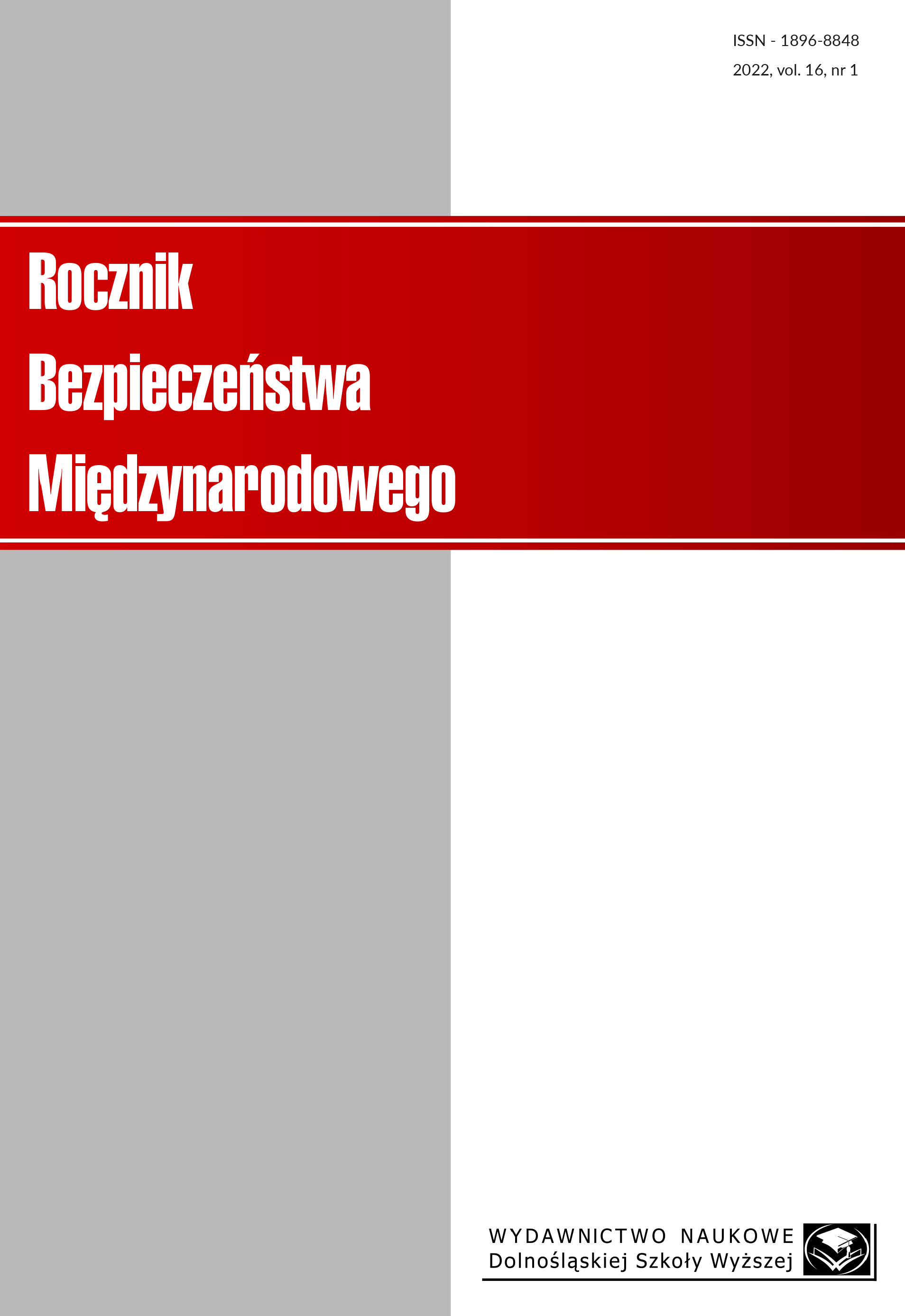Konflikt zbrojny na Ukrainie w kontekście rosyjskiej koncepcji wojny nowej generacji
Armed Conflict in Ukraine in the Context of Russia's Concept of New Generation Warfare
Author(s): Daniel KasprzyckiSubject(s): Politics / Political Sciences, Politics, Governance, Government/Political systems, International relations/trade, Security and defense, Military policy, Welfare systems, Political behavior, Politics and law, Politics and society, Inter-Ethnic Relations, Penal Policy, Geopolitics, Politics and Identity, Peace and Conflict Studies, Asylum, Refugees, Migration as Policy-fields
Published by: Wydawnictwo Naukowe Dolnośląskiej Szkoły Wyższej
Keywords: Russia; Ukraine; Russian-Ukrainian war; new generation war; armed forces
Summary/Abstract: The subject of the research, the results of which are presented in this article, was the ongoing armed conflict in Ukraine, which began on February 24, 2022. The aim of the research was to analyze the course of hostilities and identify the causes and consequences of Russian failures. The article tries to answer the following questions: How do Russian actions present themselves in the context of the concept of new generation war? What mistakes did Russia make, and What were their consequences? What factors determined the failure of the first phase of the Russian operation? In the course of the conducted research, it was established that the Russians did not fully exploit the potential of the concept of new generation warfare. It was proved that the Russian operation in Ukraine was conducted inconsistently with the canons of the art of war. It was assessed that there was a set of key factors that had a decisive impact on the failure of the first phase of the Russian operation in relation to its strategic objectives, as outlined in February 2024. It was shown that the first of these was a critical error of misjudging the enemy's potential while overestimating the potential of their own troops. It was established that the Russians prepared and executed the invasion of Ukraine contrary to the canons of the art of war. It was shown that financial resources were misallocated during the implementation of the State Armament Program in 2020. Moreover, it was proved that corruption and wastefulness, underlying the de facto autocratic system of power existing in Russia, are responsible for the actual, different from propaganda, general state of the Armed Forces of the Russian Federation. In the article, the method of critical analysis, to which the available source material (articles, reports, monographs) was subjected, and the method of historical analysis made it possible to analyze the evolution of the Russian concept of a new generation of war were used. Also, the method of induction was used to draw general conclusions from a number of specific observations, the method of deduction was used in the process of moving from general rationales to specifics, and the method of synthesis helped to examine cause-and-effect relationships concerning the subject matter addressed and made it possible to formulate the conclusions. A significant difficulty in the research process was the issue of using Russian sources in a situation where articles with a clear propaganda character are posted in trade journals and other available sources, making their substantive value low. Therefore, the article refrains from citing Russian sources.
Journal: Rocznik Bezpieczeństwa Międzynarodowego
- Issue Year: 16/2022
- Issue No: 1
- Page Range: 79-107
- Page Count: 29
- Language: Polish

